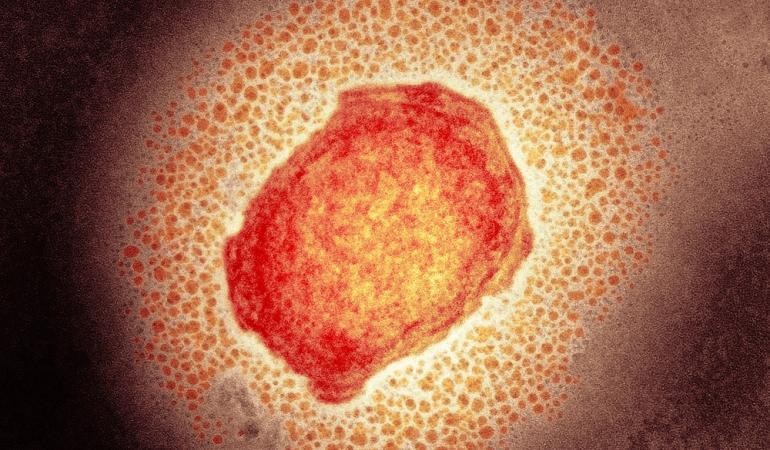
There are now 6 cases of monkeypox in humans in the Netherlands. The National Institute for Public Health and the Environment (RIVM) and Erasmus University Medical Center are continuing to analyse new samples to ensure swift detection of any new cases and to reduce the chances of further spread.
The first human case of monkeypox in the Netherlands was confirmed last Friday. The number of human cases has since risen to 6. Some of the people infected attended the Darkland festival in Belgium. All cases involve men who have sex with men, though this does not mean that the virus can (or can only) be spread through sexual contact or that the virus cannot spread beyond this group of people.
Symptoms
People infected with monkeypox will be ill for approximately 2-4 weeks. Common symptoms include fever, muscle ache and fatigue. These are then followed by lesions on the skin that turn into blisters. The blisters can form around the anus and pubic region, but will also form on the rest of the body, on the face and in the mouth. They will subsequently dry out and crust over before gradually falling off. Infected people will remain infectious to others until all the scabs have fallen off, which can take up to 2-4 weeks, which is why people who test positive for monkeypox are being asked to go into isolation.
Infection
High-risk contacts, such as sexual contacts or housemates, with whom an infected person has had skin-to-skin contact, are being asked to go into quarantine and can get vaccinated against pox, thereby reducing the chances of them getting sick. Vaccination will only be offered to people with a high risk of infection. You will not be able to request the vaccine yourself at your GP or at the Municipal Health Service (GGD).
Update
An update on any further confirmed cases will follow on Wednesday.